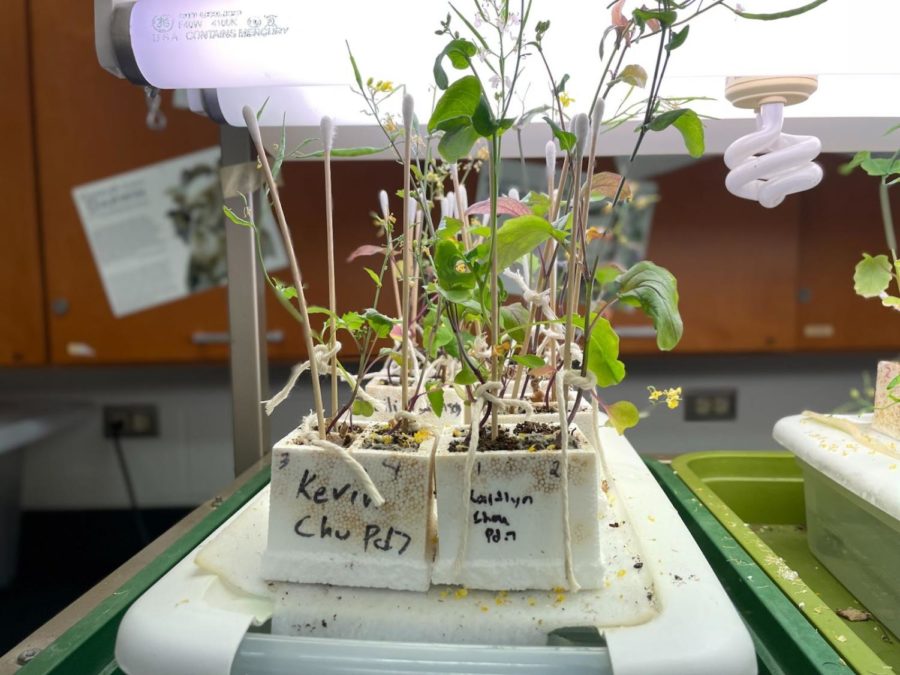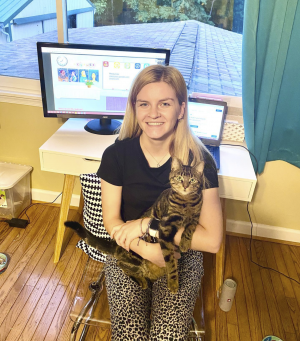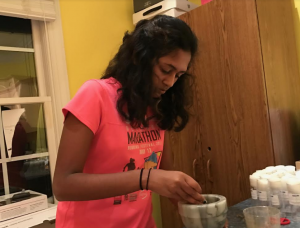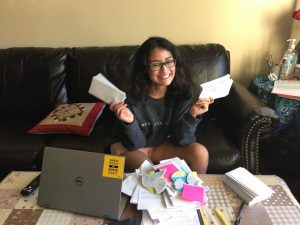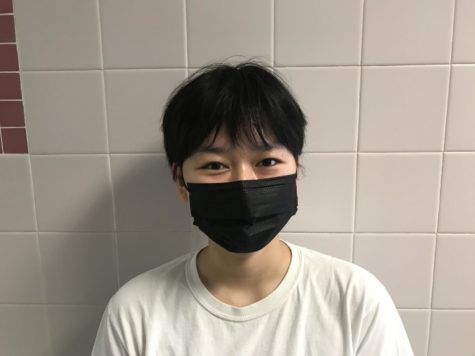Biochemistry Club participates in research with William & Mary
Like the name suggests, biochemistry is a subdiscipline of both biology and chemistry that studies chemical processes in relation to living organisms. Students in AP Biology are manually pollinating plants.
November 27, 2021
Looking to create a relaxed space for students to explore science, club founders and seniors Yukta Ramanan and Manya Phutela started the Biochemistry Club to cater to students who like science but do not want to compete in it.
“A lot of the science clubs at Chantilly are very performance-based, like in Science Olympiad or Biology Olympiad,” Phutela said. “I didn’t think there were enough places or forums to explore interests in science.”
Some members, like junior Imran Rahimizai, joined the club to prepare for plans beyond high school. Club members participate in various other activities during their monthly meetings, such as hosting workshops on research and lab papers, exploring “Today in Science” lessons, offering publishing opportunities to students and more.
“In college, I want to go into the sciences,” Rahimzai said. “I joined the Biochemistry Club because I want to have a good understanding of what [biochemistry] is and the research aspect of it because research is [pretty] big in college.”
During the Biochemistry Club’s first year in distance learning, members admittedly found that the club fell short of their expectations as a result of virtual learning restrictions. One struggle the club encountered at the start was encouraging meeting turnout.
“It was underwhelming,” Ramanan said. “We just did a lot of workshops and explained concepts in science. It was hard to promote it online, and there was less of an incentive to show up because we weren’t working with William & Mary either.”
Now that school is back in person, the club is excited to get back on track. Despite being just a little more than two months since the start of the school year, they have already organized a research opportunity with undergraduate students from the College of William & Mary.
“We talked to Dr. Hinton at William & Mary, who is researching the MK-STYX protein and its role in the body,” Phutela said. “MK-STYK is necessary for cell function. It plays a role in maintaining a protein phosphorylation balance.”
William & Mary’s biochemistry department offered club members the opportunity to shadow by sitting in on their Zoom conferences and engaging in research discussions.
“It’s about learning and getting exposure to a research environment,” Ramanan said. “We want people to get exposure to real-life science like they would in college.”
The weekly lab meetings are optional for club members to participate in, and occur outside of the club in the evening. Although working with college students has been somewhat daunting, Rahimzai has found the experience insightful and inspiring.
“It’s been very informative, [almost] like a college class,” Rahimzai said. “Sometimes it’s a bit overwhelming because we’re working with college students who are a lot smarter, but if you look at it from a [bigger] perspective, we get early access into what might be our future. It’s a really great experience.”
In addition to the online research calls, the club hopes to visit the William & Mary campus and lab in the near future to take their research to the next level.
“We’re lucky that William & Mary is letting us go to their lab meetings although they’re online, [but] we [do] want to go in-person sometime during a field trip at the end of the year,” Ramanan said.
The Biochemistry Club takes advantage of its small size to form deeper bonds among its members.
“My favorite part about the club is the people in it,” Rahimzai said. “We’re not a super big club, so everyone knows each other and we all interact with one another.”
As the Biochemistry Club grows, members have many goals and aspirations for the club moving forward.
“[We hope] people who aren’t interested in science come to the club,” Ramanan said. “Even [though] I’m not majoring in anything like biochemistry [nor] do I want to, I think it’s so important to [learn] foundational concepts to apply them to other fields.”
The Biochemistry Club meets on the second Wednesday of the month in room 132, but meeting dates are subject to change. Students interested in participating can join the club’s group on Schoology, follow them on Instagram @chsbiochem or email them at [email protected].


